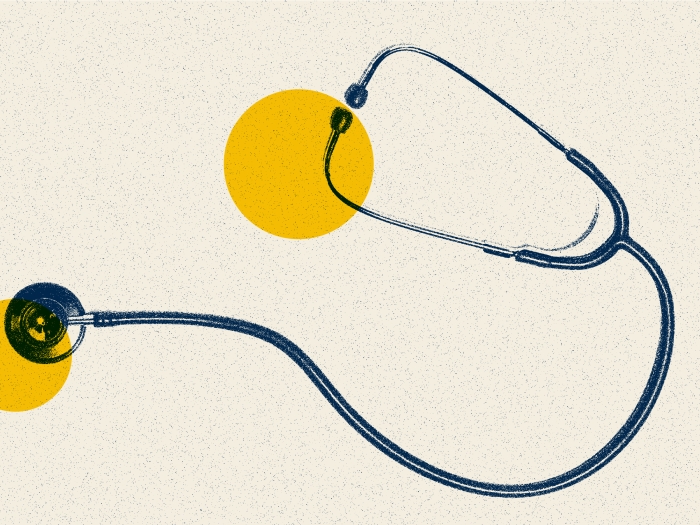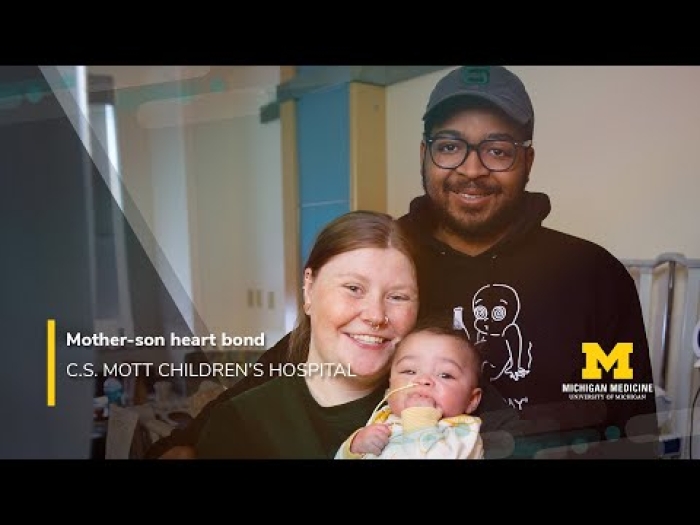Research studies cellular functions behind an aggressive childhood cancer
10:56 AM
Author |

Research from Michigan Medicine experts is shedding light and potentially expanding options for patients living with medulloblastoma, an aggressive childhood cancer.
Medulloblastoma is a cancer impacting both very young and school aged children.
When children get this type of brain tumor, they experience the process of the tumor blocking flow of fluid around the brain.
This can cause severe headaches, vomiting, sleepiness, fussiness, and difficulty walking and coordinating movements.
Treatment is intense, involving high dose chemotherapy, surgery, and sometimes radiation or stem cell transplants.
During these months long treatments, children may lose hair, lose weight, be unable to eat and experience lots of upset stomachs.
Medulloblastoma is also a complex disease with many different genetic causes, making a one-size-fits-all approach to treatment impossible.
“Unfortunately, many patients with certain forms of medulloblastoma do not respond well to treatment,” said one of the senior authors John Prensner, M.D., Ph.D., a pediatric neuro-oncologist at University of Michigan Health C.S. Mott Children's Hospital and assistant professor of pediatrics and biological chemistry at Michigan Medicine.
“This research is critical in helping us begin to understand how medulloblastoma works on a genetic and cellular level so that patients can be treated, and new therapies can be developed, accordingly.”
The research
Prensner, of the Michigan Medicine Chad Carr Pediatric Brain Tumor Center, paired up with the team of Sebastiaan van Heesch, Ph.D., research group leader at the Princess Máxima Center for pediatric oncology in the Netherlands, to examine several groups of patients, some of which experienced the most aggressive form of the cancer and had the poorest outcomes.
Many of those patients had biological and genetic factors that exacerbated their cancers, including the cancer gene MYC.
Prensner’s team and their collaborators took a new hypothesis on how MYC might be functioning and how that might be implicated in cancer.
“The twist that we put on it is to ask the question, what if this MYC is doing important functions outside of what we know to be genes in these cancer cells?” Prensner said.
Damon Hofman, a Ph.D. student in the Van Heesch group at the Princess Máxima Center and one of the first authors of the study, added: “For the first time, we identified and studied the role of essential microproteins in medulloblastoma.
“The micro-protein ASNSD1-uORF appeared to be essential for MYC cancer cells. The fact that these previously overlooked tiny proteins are so important for the survival of this kind of cancer cell is fascinating and underscores the importance of expanding research into other childhood cancers.”
With further understanding of MYC and other genetic, biological, and cellular factors, providers can then learn how to intervene with these cancers.
Furthermore, the research could support development of therapeutics that could target the molecular process allowing cancer cells to grow.
This study may be newer, but Prensner’s interest in medulloblastoma is not.
His experience began early when he was a medical student; he was moved by the patients he met who were living with the tumor.
“I've never forgotten, not just the patients, but the families. That's why it's been so important to me to try to use the interests and training that I have in the scientific fields to think about how we can really unlock new areas of understanding about this disease to get these patients better choices,” he said.
J.R.P. acknowledges funding from the National Institutes of Health – National Cancer Institute (K08-CA263552-01A1), the Alex’s Lemonade Stand Foundation Young Investigator Award (#21-23983), the St. Baldrick’s Foundation Scholar Award (#931638), the DIPG/DMG Research Funding Alliance, the Cure ATRT Now Fund, the Musella Foundation for Brain Tumor Research, and a Collaborative Pediatric Cancer Research Awards Program/Kids Join the Fight award (#22FN23). T.R.G. acknowledges funding from the National Cancer Institute (1 R35 CA242457–01). K.L.L. and J.V. acknowledge support from the Pediatric Brain Tumor Foundation, the National Brain Tumor Society, and 3000 Miles to the Cure. S.v.H. acknowledges funding from Fonds Cancers (FOCA, Belgium), Stichting Reggeborgh (the Netherlands), and Bergh in het Zadel (the Netherlands). N.H. acknowledges funding from the European Union Horizon 2020 Research and Innovation Program(AdG788970), the Deutsche Forschungsgemeinschaft (SFB-1470 – B03), the Chan Zuckerberg Foundation (2019-202666), the Leducq Foundation (16CVD03), the British Heart Foundation, and the Deutsches Zentrum für Herz-Kreislauf-Forschung (BHF/DZHK: SP/19/1/34461). P.B. acknowledges funding from the Isabel V. Marxuach Fund for Medulloblastoma Research and the Jared Branfman Sunflowers for Life Fund for Pediatric Brain and Spinal Cancer Research.
“Translation of non-canonical open reading frames as a cancer cell survival mechanism in childhood medulloblastoma,” Molecular Cell. DOI: 10.1016/j.molcel.2023.12.003
Sign up for Health Lab newsletters today. Get medical tips from top experts and learn about new scientific discoveries every week by subscribing to Health Lab’s two newsletters, Health & Wellness and Research & Innovation.
Sign up for the Health Lab Podcast: Add us on Spotify, Apple Podcasts or wherever you get you listen to your favorite shows.

Explore a variety of healthcare news & stories by visiting the Health Lab home page for more articles.

Department of Communication at Michigan Medicine
Want top health & research news weekly? Sign up for Health Lab’s newsletters today!





